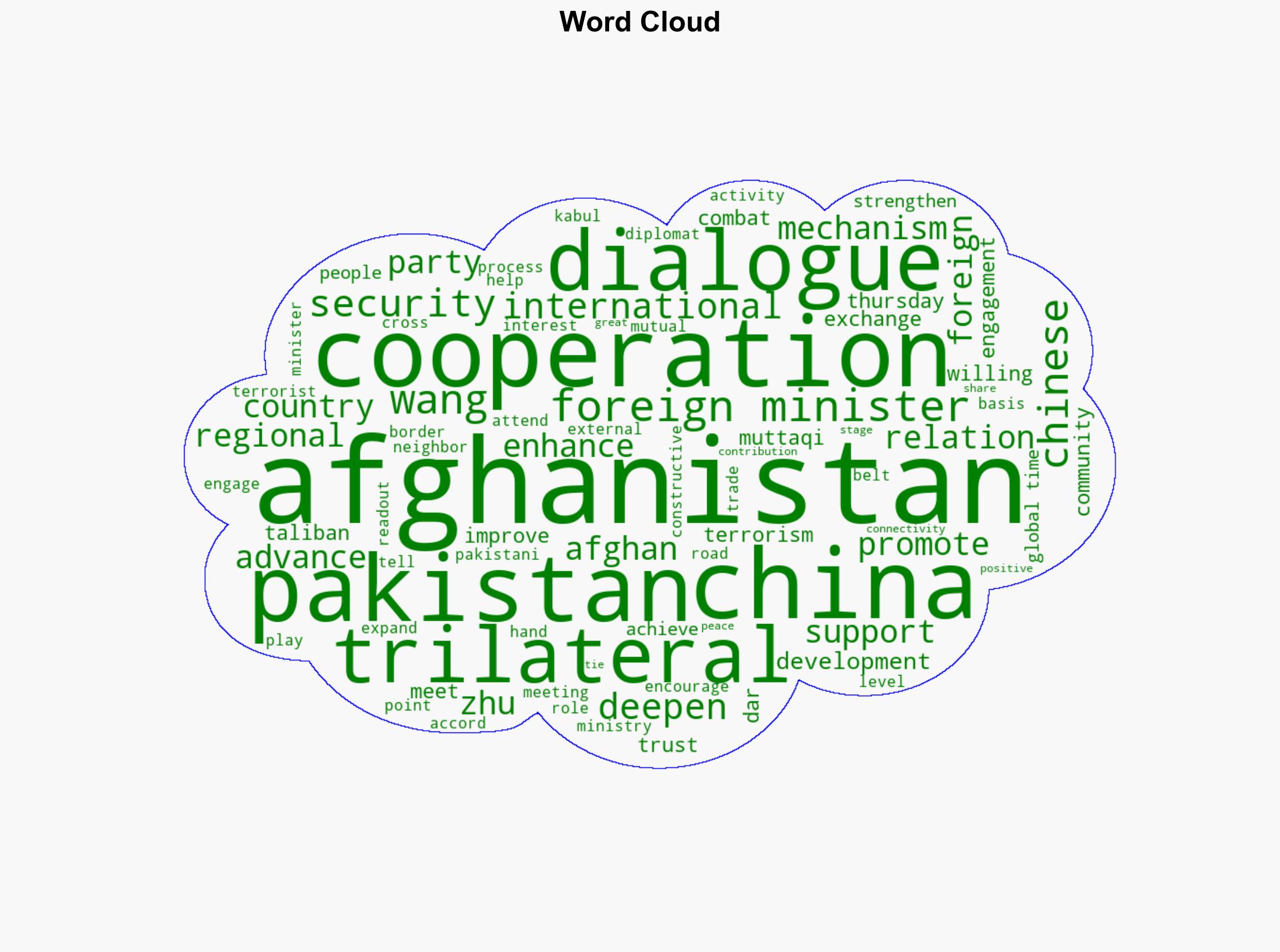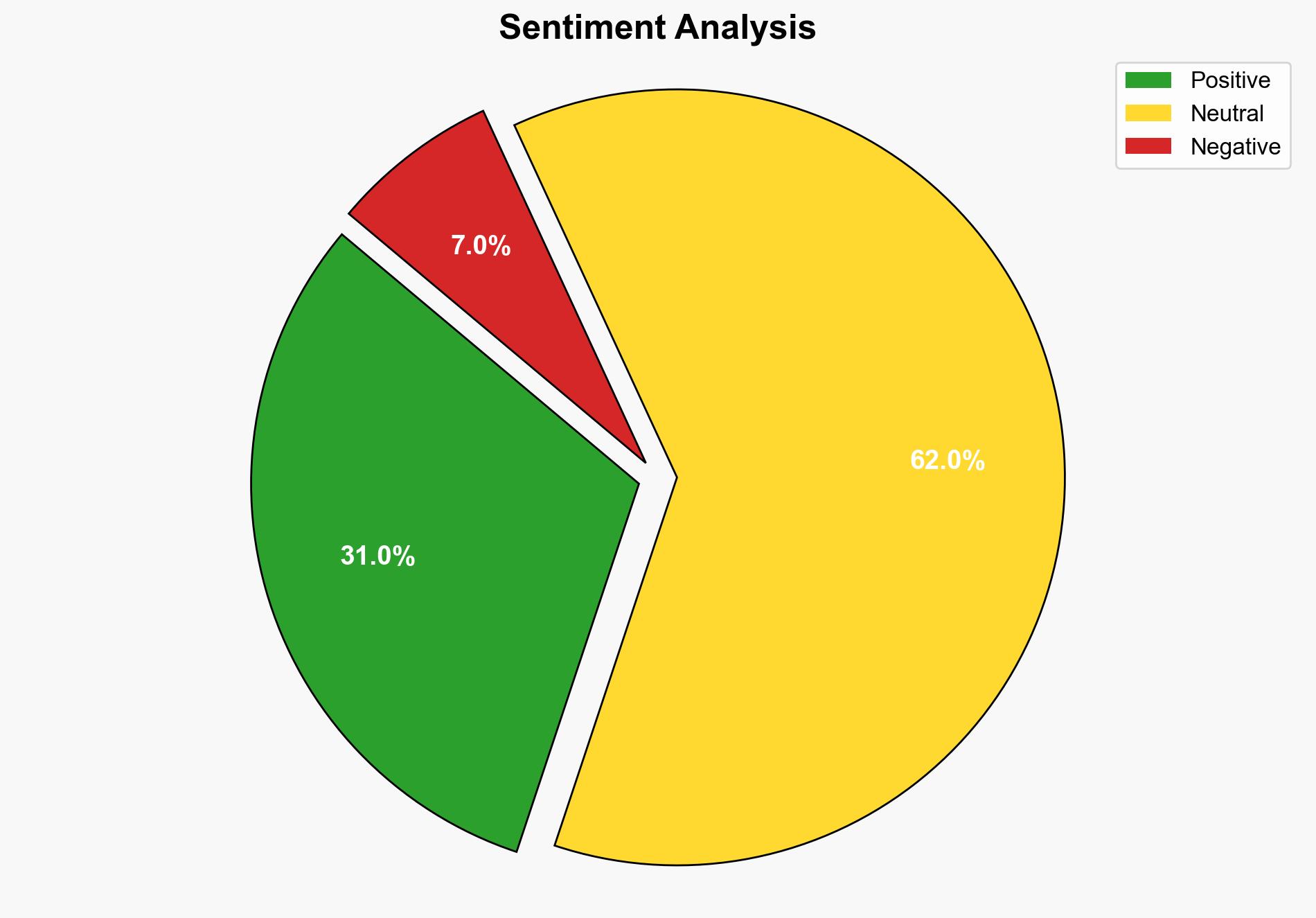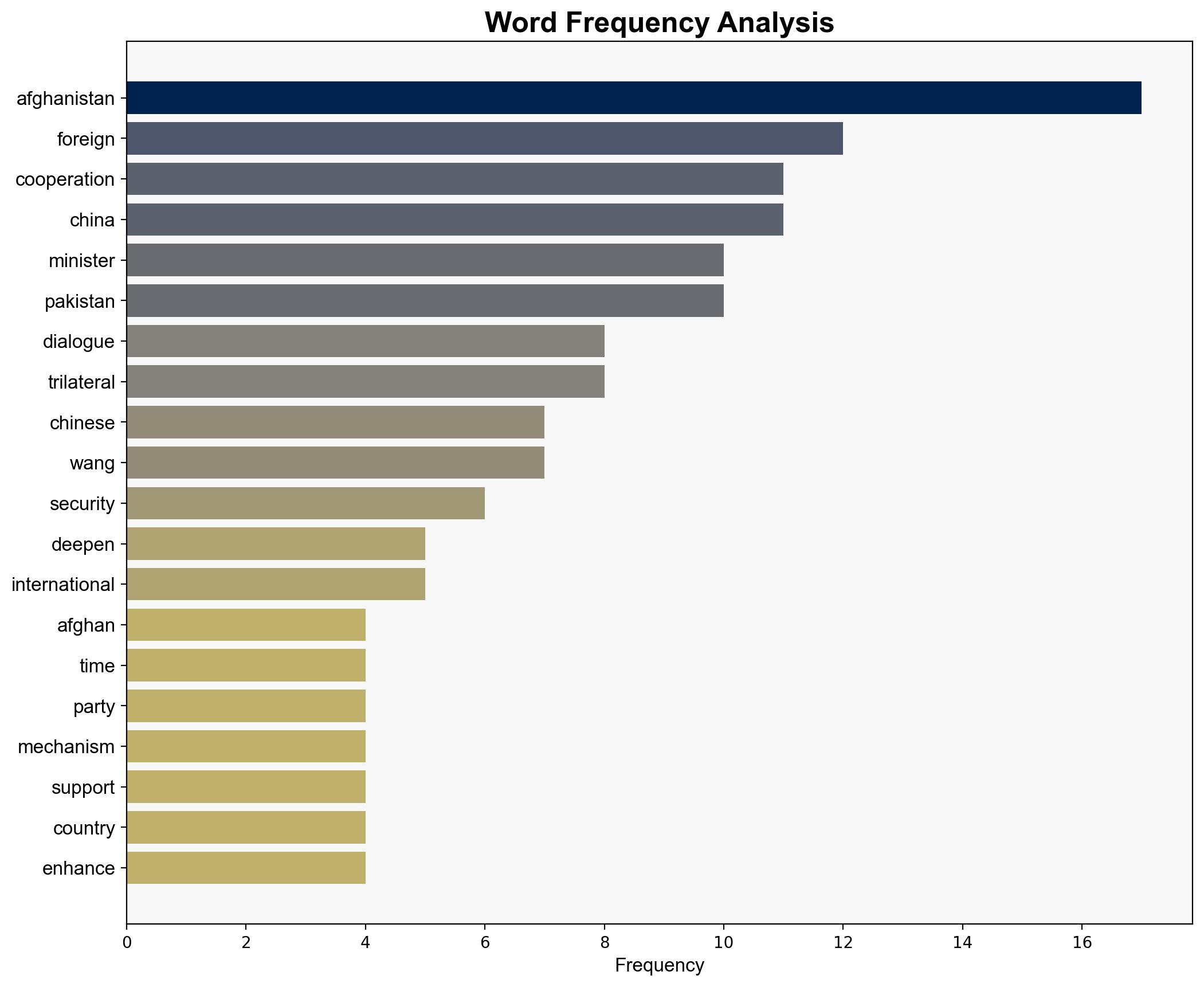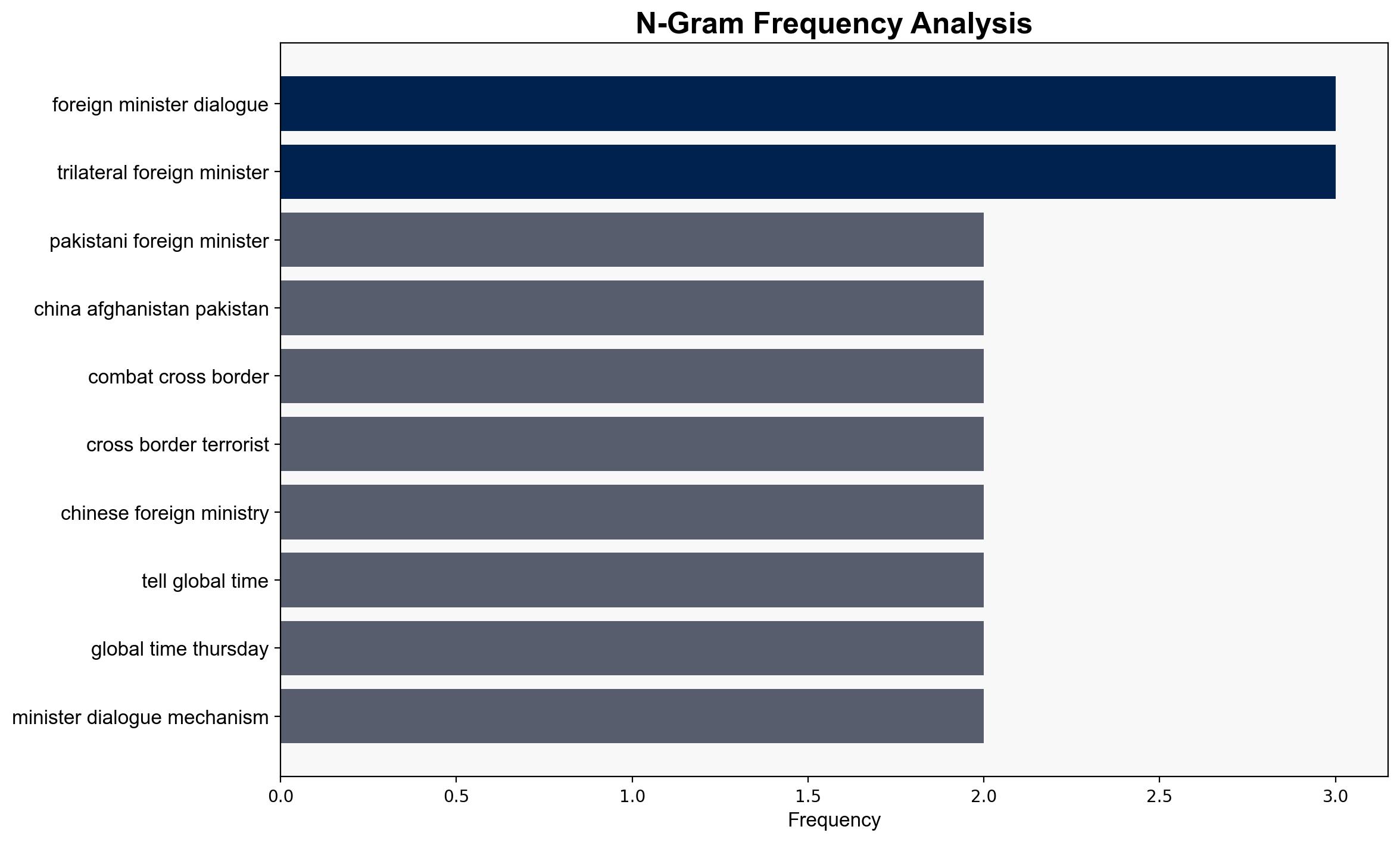Chinese Afghan Pakistani foreign ministers convene in Kabul vowing to deepen cooperation and combat terrorism – Globalsecurity.org
Published on: 2025-08-21
Intelligence Report: Chinese Afghan Pakistani foreign ministers convene in Kabul vowing to deepen cooperation and combat terrorism – Globalsecurity.org
1. BLUF (Bottom Line Up Front)
The trilateral meeting between China, Afghanistan, and Pakistan signifies a strategic alignment aimed at enhancing regional security and economic cooperation. The most supported hypothesis is that China seeks to stabilize Afghanistan to secure its Belt and Road Initiative (BRI) interests and counterbalance Western influence. Confidence level: Moderate. Recommended action: Monitor developments in trilateral cooperation and assess impacts on regional security dynamics.
2. Competing Hypotheses
1. **China’s Strategic Stabilization Hypothesis**: China is primarily motivated by the need to stabilize Afghanistan to protect its BRI investments and counter Western influence in the region. This involves fostering regional cooperation to combat terrorism and enhance economic integration.
2. **Regional Security Cooperation Hypothesis**: The meeting is primarily driven by a genuine regional effort to combat terrorism and improve security through mutual cooperation, with China playing a facilitative role rather than a dominant one.
Using ACH 2.0, the first hypothesis is better supported due to China’s historical emphasis on securing its economic interests and the strategic timing of the meeting before the SCO summit.
3. Key Assumptions and Red Flags
– **Assumptions**:
– China views Afghanistan’s stability as critical to its BRI success.
– Pakistan and Afghanistan are willing to cooperate under China’s leadership.
– **Red Flags**:
– Lack of specific commitments or timelines in the dialogue outcomes.
– Potential over-reliance on diplomatic rhetoric without actionable plans.
– The possibility of underlying tensions between Afghanistan and Pakistan that could undermine cooperation.
4. Implications and Strategic Risks
– **Economic Implications**: Enhanced cooperation could lead to increased trade and infrastructure development, benefiting regional economies.
– **Geopolitical Risks**: If perceived as a move to counter Western influence, this could escalate tensions with the US and its allies.
– **Security Risks**: Failure to effectively combat terrorism could destabilize the region further, impacting global security.
5. Recommendations and Outlook
- **Monitor**: Track developments in trilateral cooperation and assess impacts on regional security dynamics.
- **Engage**: Encourage diplomatic engagement with China, Afghanistan, and Pakistan to understand their strategic intentions.
- **Scenario Projections**:
– **Best Case**: Successful stabilization of Afghanistan, leading to enhanced regional security and economic growth.
– **Worst Case**: Breakdown in cooperation, leading to increased regional instability and security threats.
– **Most Likely**: Gradual progress in cooperation with intermittent challenges due to underlying regional tensions.
6. Key Individuals and Entities
– Wang Yi
– Amir Khan Muttaqi
– Ishaq Dar
7. Thematic Tags
national security threats, cybersecurity, counter-terrorism, regional focus




